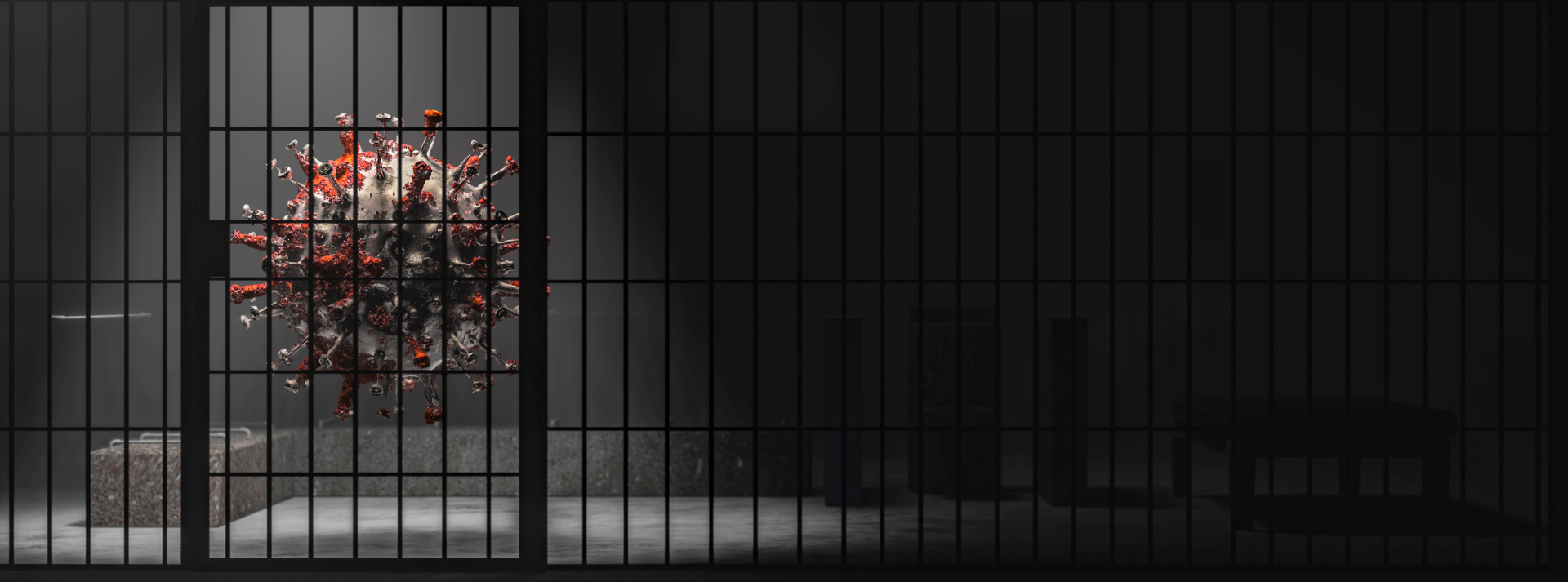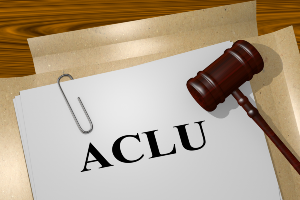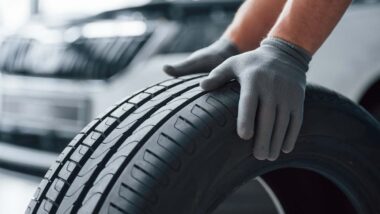Top Class Actions’s website and social media posts use affiliate links. If you make a purchase using such links, we may receive a commission, but it will not result in any additional charges to you. Please review our Affiliate Link Disclosure for more information.
A settlement has been reached in a class action lawsuit alleging Connecticut state correctional facilities failed to implement adequate procedures to protect inmates during the coronavirus outbreak.
The ACLU of Connecticut, along with several inmates of Connecticut state correctional facilities, filed the class action lawsuit in April. The plaintiffs sought to represent a Class of all who were incarcerated in a Department of Corrections facility from March 1, 2020 and Dec. 31, 2020.
The prisoner coronavirus class action lawsuit contended Connecticut prisoners were not being provided adequate access to protections from the spread of the virus. The ACLU also alleged the state failed to implement an early release program to protect vulnerable inmates and stop the spread of COVID-19 in the midst of the pandemic.
Under the terms of the settlement agreement, a monitoring panel made up of five people will be formed to review the department’s compliance with CDC guidelines and make recommendations. The settlement also calls for increased testing of prisoners in state facilities, along with screening and testing of staff and other visitors.
Additionally, the Department of Corrections has agreed to implement 14-day quarantines for new admissions and isolation procedures for those who test positive for COVID-19. Prisoners will be given increased access to showers, soap and face masks, along with supplies to clean their cells and sanitize phones. The department also agreed to increase cleaning of the facility.
Inmates may no longer be subject to punitive work assignments and loss of phone privileges, along with other punitive measures affecting housing status and program access, simply because they tested positive for coronavirus.
Finally, inmates who are older than 65 or who have medical conditions, as well as the general population, will be evaluated by the commissioner of correction for possible early release. The settlement implements a scale officials must use to evaluate the potential early release of an inmate.
“People who are incarcerated are people, with human rights, dignity and healthcare needs,” the ACLU of Connecticut’s legal director said in response to the settlement agreement, according to local news source Eyewitness News 3.
“It is critical for the State of Connecticut to protect people who are incarcerated from COVID-19, and it is our hope these new measures will protect people from COVID-19 while also treating them with dignity. It will require our constant vigilance to ensure the DOC keeps the promises it has made in this agreement.”
For its part, Connecticut’s Department of Corrections claims it already had proper procedures in place.
“This settlement affirms the approach that the Department of Correction has been taking since the beginning of this pandemic,” the government said in response to the settlement agreement, the Hartford Courant reports. “The department will continue to act in this responsible manner as identified by the court and by this settlement.”
David McGuire, executive director of the ACLU of Connecticut, said the settlement falls short of the organization’s goal of early release, according to the Hartford Courant. In addition, McGuire noted another goal of the organization was to limit incarcerations when courts reopen.
“[T]he ACLU of Connecticut remains committed to using every remaining advocacy tool at our disposal to push for people who are incarcerated to be safely, thoughtfully released from prisons and jails,” McGuire said in response to the settlement agreement. “The legislature must pass a pandemic response plan for Connecticut prisons and jails that includes much broader releases than those mandated in this agreement.”
McGuire went on to note the Department of Corrections and governor of Connecticut were the subject of two lawsuits, reportedly stating it took these efforts to get the state to implement “even basic COVID-19 protections.”
“As was the case before COVID-19 and as remains the case now, Connecticut can and should reduce the number of people who are incarcerated to protect public health,” McGuire told the Courant.
The prisoner coronavirus class action settlement still must be approved by a federal judge.
In related legal news, the children of prisoners in the U.K. have not been able to visit their incarcerated parents since March due to coronavirus restrictions, and lawyers say the children’s human rights are being breached by not having access to their parents for months.
Have you or a loved one been incarcerated during the coronavirus pandemic? Do you think appropriate safety measures are in place? Tell us your story or thoughts in the comments below.
The ACLU and Class Members are represented by Dan Barrett and Elana Bildner of the ACLU Foundation of Connecticut and Will W. Sachse of Dechert LLP.
The Prisoner Coronavirus Protections Class Action Lawsuit is McPherson, et al. v. Lamont, et al., Case No. 3:20-CV-0534 (JBA), in the U.S. District Court for the District of Connecticut.
Join a Free Coronavirus Class Action Lawsuit Investigation
If you believe your rights were violated in a way that is directly related to the coronavirus pandemic, you may qualify to join this coronavirus class action lawsuit investigation.
ATTORNEY ADVERTISING
Top Class Actions is a Proud Member of the American Bar Association
LEGAL INFORMATION IS NOT LEGAL ADVICE
Top Class Actions Legal Statement
©2008 – 2024 Top Class Actions® LLC
Various Trademarks held by their respective owners
This website is not intended for viewing or usage by European Union citizens.

















13 thoughts onACLU Reaches Prisoner Coronavirus Class Action Settlement
Nico jackson in Lexington Oklahoma kidney patient was supposed to get released during COVID 19 outbreak instead missed several treatments because workers didn’t show up, plus was put in isolation and he did not have the civic 19. Other inmates that wasn’t sick got to go home. Plus the inmates with the civic 19 was able to walk around to infect others. Unfair situation
My husband is incarcerated in California, he is 59, has already done 31 years of a 25-Life sentence and now is in isolation still even after testing negative twice after his cellie tested positive. We are allowed two 15 minute phone calls a week when the correctional staff has time to allow them. I have not seen him since March 1, 2020. Our family visit dates have been cancelled the time since pandemic started and now we won’t get our next family visit until September 2021, almost two years since our last visit. The mailroom either returns mail or does not pass it out and sits there for sometimes weeks before being delivered to them. He most likely will lose his housing assignment because of this isolation he is under. I miss my husband and I believe CDCR is purposely using this pandemic as an excuse to detach families from each other as a way to keep control over the incarcerated population. My husband had Bells Palsy a few years ago and the stress could very likely be causing some of the symptoms to remanifest themselves in his health and well being. Our mental health has been a struggle as well as we try to make sense of this whole Corona virus and the punitive actions taken against them by CDCR when they have done nothing wrong but trying to get through their sentence and get home to their families.
No my husband is in Illinois state prison and to many inmates are dying our Govenor did sign into executive order given the director rob Jeffreys sole discretion to give EDSC of 180 days to eligible nmates and there are so many eligible hes not released the staff dont wear masks properly, under fed, locked down inmates arent giving cleaning supplies so much more to list
My son is incarcerated in Ca. State Prison Los Angeles Co. located in Lancaster, CA.
The prison is not sending home all the people at risk. They are only sending home inmates that have under a year to go. And usually within a few months of their release date. My son has more than a few health conditions that place him at risk. He has 1 year and 9 months to go so they won’t release him. Whats worse some of these conditions have been made worse due to the prisons neglect and flat out refusing to give my son the diet his Doctor prescribed for him. It’s nothing unreasonable actually it’s pretty basic. Also he has Hep C and his Viral load count is ( 2.5 Million ) a normal count is 400,000 & 800,000 is considered very high.
“High viral load: This is when your count is more than 800,000 IU/mL. If your viral count is high at the start, it can be hard or impossible for your treatment to completely get rid of the virus. Some researchers consider high levels anything above 400,000 IU/mL.” this was taken from a medical article from web MD. Brian’s liver enzymes are also very high. His levels are so high that his Dr. at the prison told him that they are going to send him out for tests because the reasons that his levels would be that high would be “Liver failure, or Cancer.” He also has a bleeding ulcer that he’s had to have surgery on a few times since he’s been in prison. He is in prison for a DUI W/ Serious injury. The person hurt was his wife. Michelle wasn’t wearing a seat belt and was hurt pretty bad. They gave him 8 years for a first offence. 4 for the DUI & 4 for a GBI enhancement. Now I fear that my son may never make it back home. I would appreciate any help that you can give us.
Thank You
Kathlyne
Oklahoma Lexinghton assement prison riots broke out because of the pandemic it was kept quite from the public several inmates were hurt not probably treaded suffering from stab wounds getting teatnucle shots from cuts 3months later skipping dialysis treatment sweep under the rug no family’s notified or the public not aware of riot
Hi I’m inquiring for my son who was held in a jail to be transfered to a different facility. this was before the covid thing started. While their after a couple of month he was tested for covid. His test was positive. But even tho he tested positive he was returned to his pod. He wasn’t isolated from other inmates. The jail I believe didn’t take any precautions to make sure that inmates were safe while their. All the institution had to do was quarantine new inmates. By not doing this they put not just him but me his mother through undo stress and emotional turmoid, which no one should have to go thru just because the justice department, jails etc didn’t care enough to take any precautions to ensure that my son and all other inmates would be safe which is as far as I’m concerned part of their job, its not that inmates can just leave or can isolate themselves, wear mask etc to stay safe. This is not acceptable, thank God my son is ok now, but even now I still worry since you hear so much about the virus and even how some people after they recovered developed other health problems from it. So yes they should be held responsible for their actions or rather inactions to protect the once that cant.
I was a inmate in the Sussex county jail in Delaware and was exposed to it twice without precautionary measures taken by the warden to ensure my safety such as issuing masks or disinfecting areas of inmates.
Ive been attempting to help with our inmate. He is ut now and safe but extremely traumatized
Yes, I know someone in Century, Florida Work Camp.
So far, they have had 2 outbreaks of the virus at the main unit,
1st time, it was 2 nurses that brought it in.
this time, Im not sure.
But, they also dont have a decent water system for showers, the water is Blue, rom copper pipes. They were actually told not to take showers.
they didnt have face mask for at least 2 months.
not only that, but now there is an outbreak of scabbies.
they are not treating prisoners for scabbies, and took them 2 weeks to take skin samples to send off and get tested.
For the time being, they just have to itch.
anyway they have the virus at the main unit over 100 positive cases.
In mass during this crisis there have been no transfers. No courts are open. Therefore the inmates at MCI Norfolk are not receiving any goodtime and sitting stagnant. Why cant the prisons or the Gov. Baker allow the incarcerated to get the 71/2 days goodtime per month they are allowed. What harm would this do?